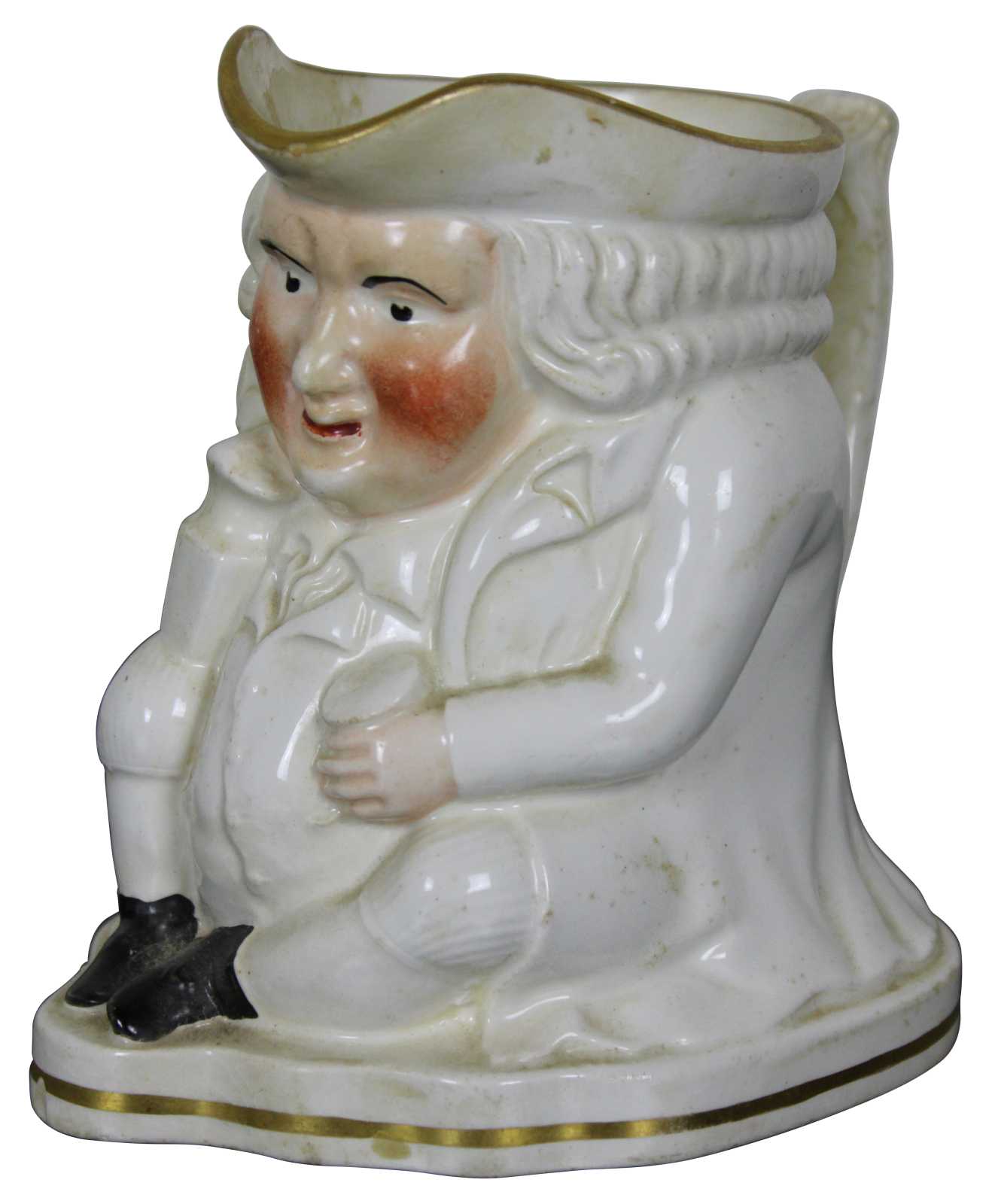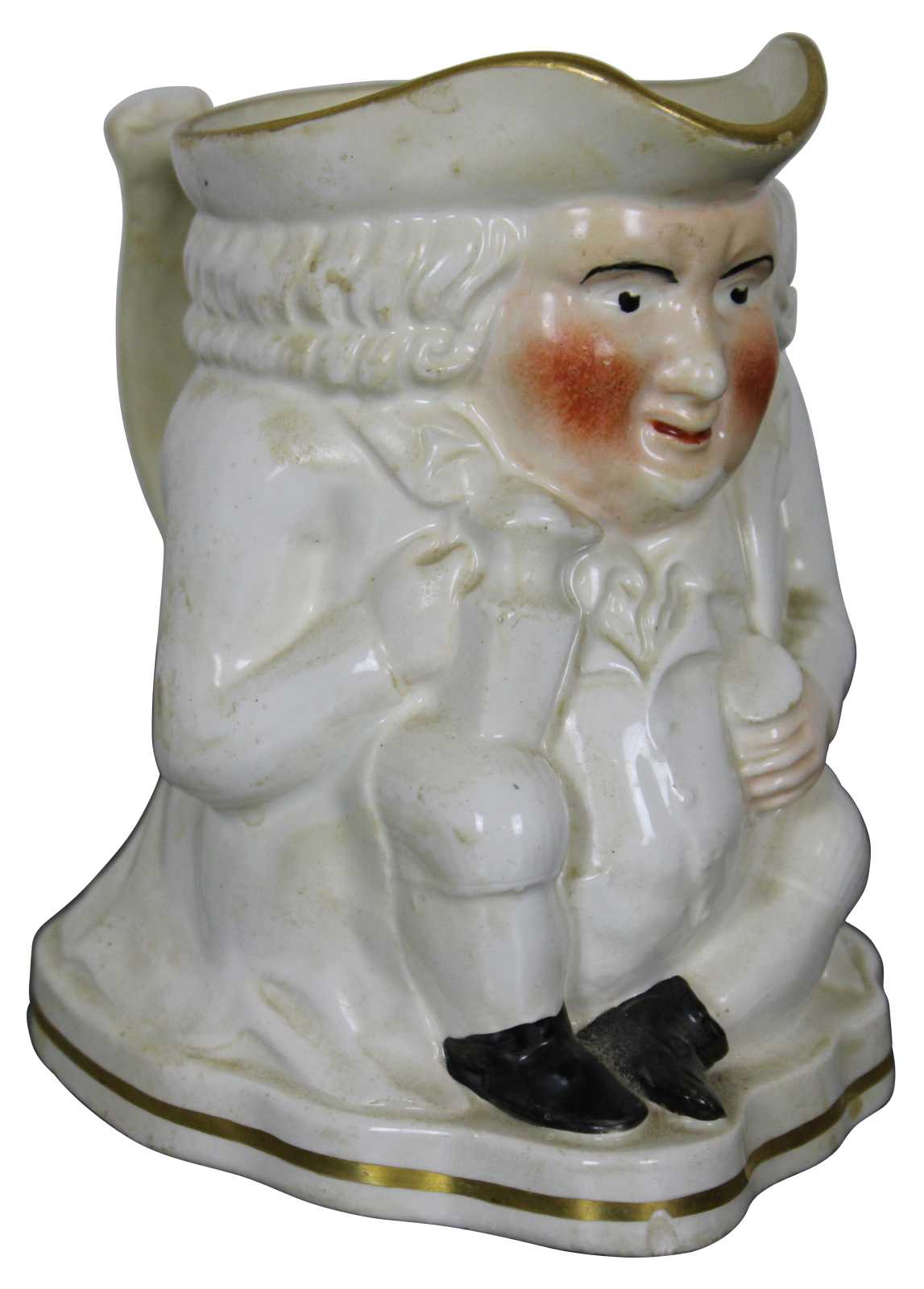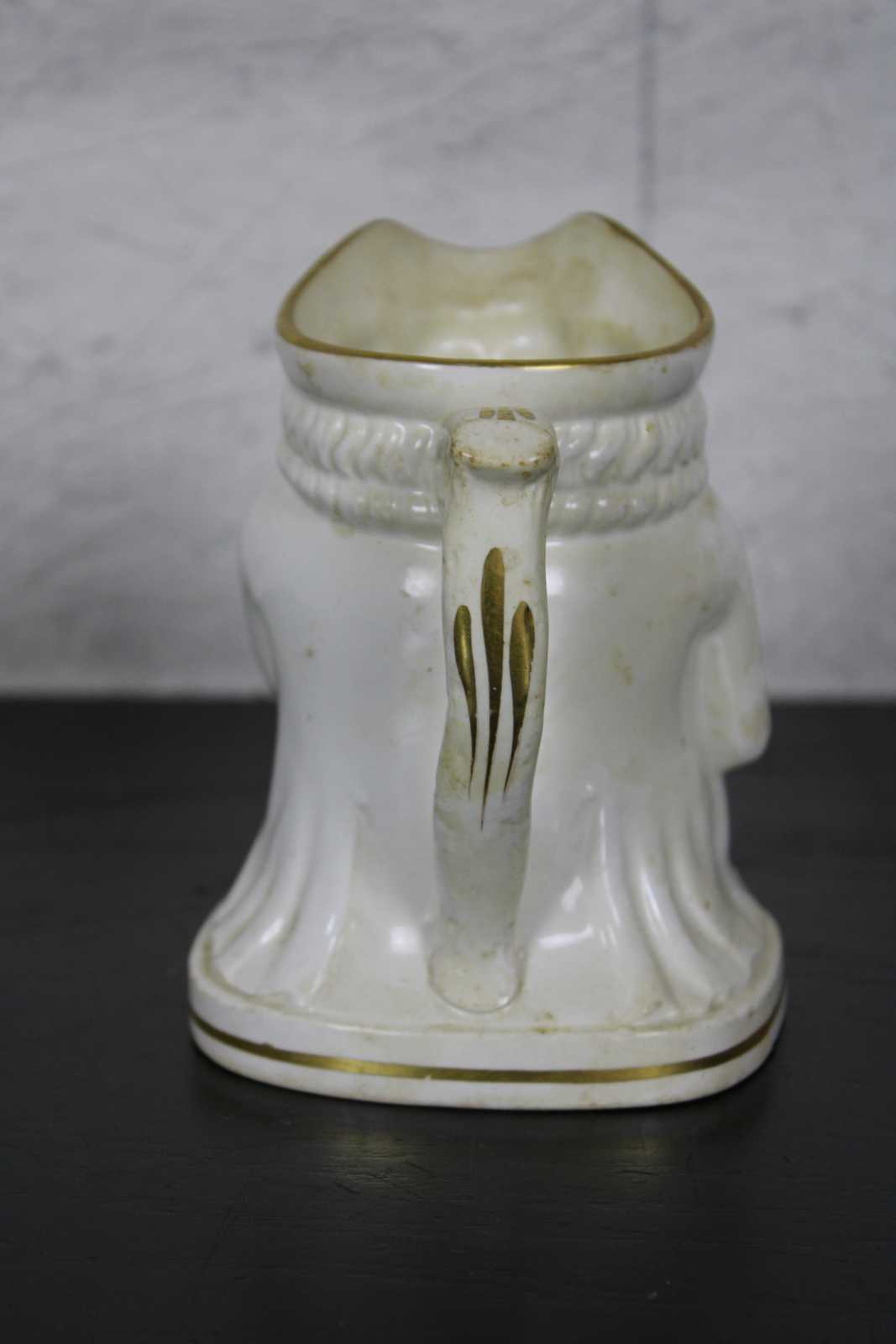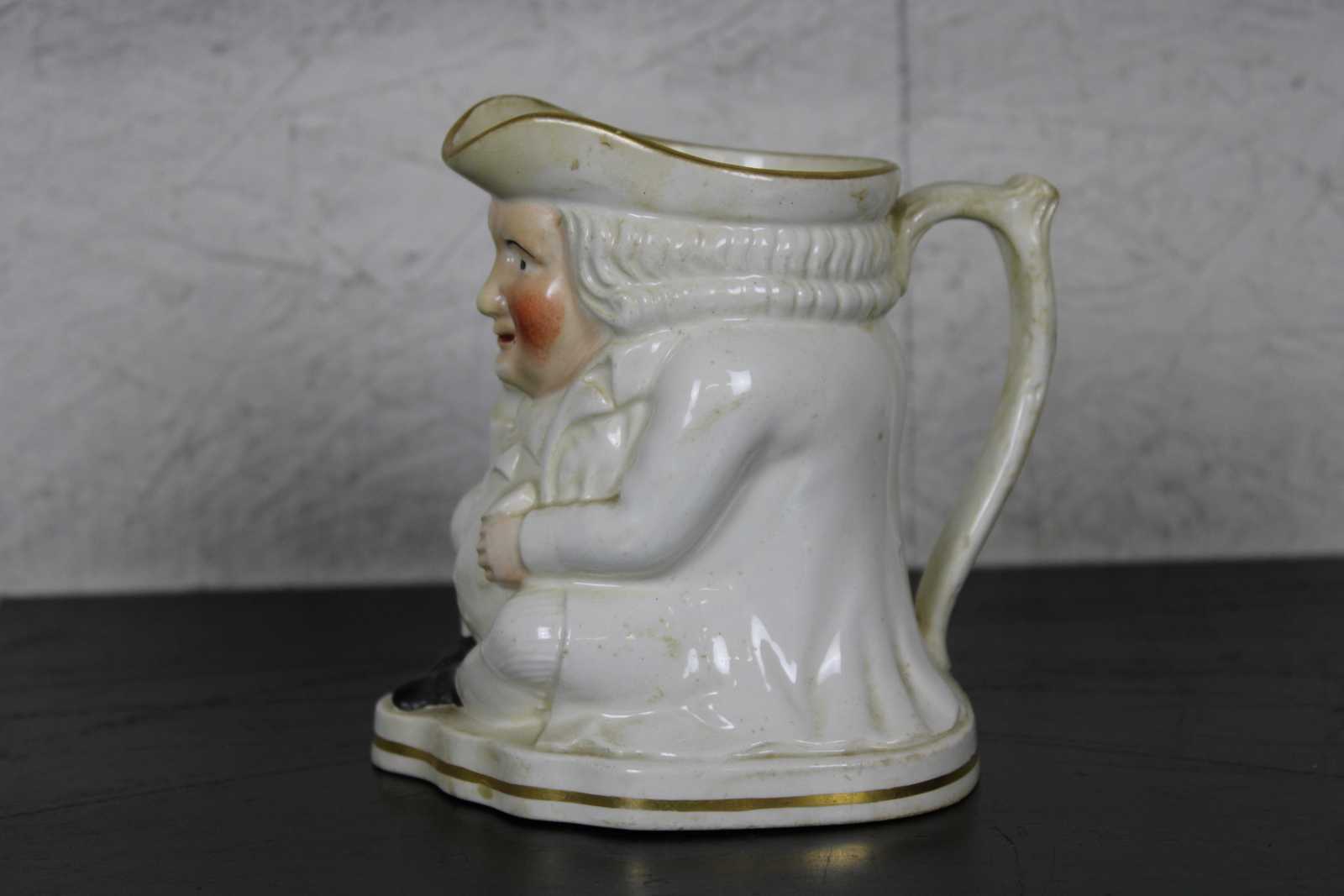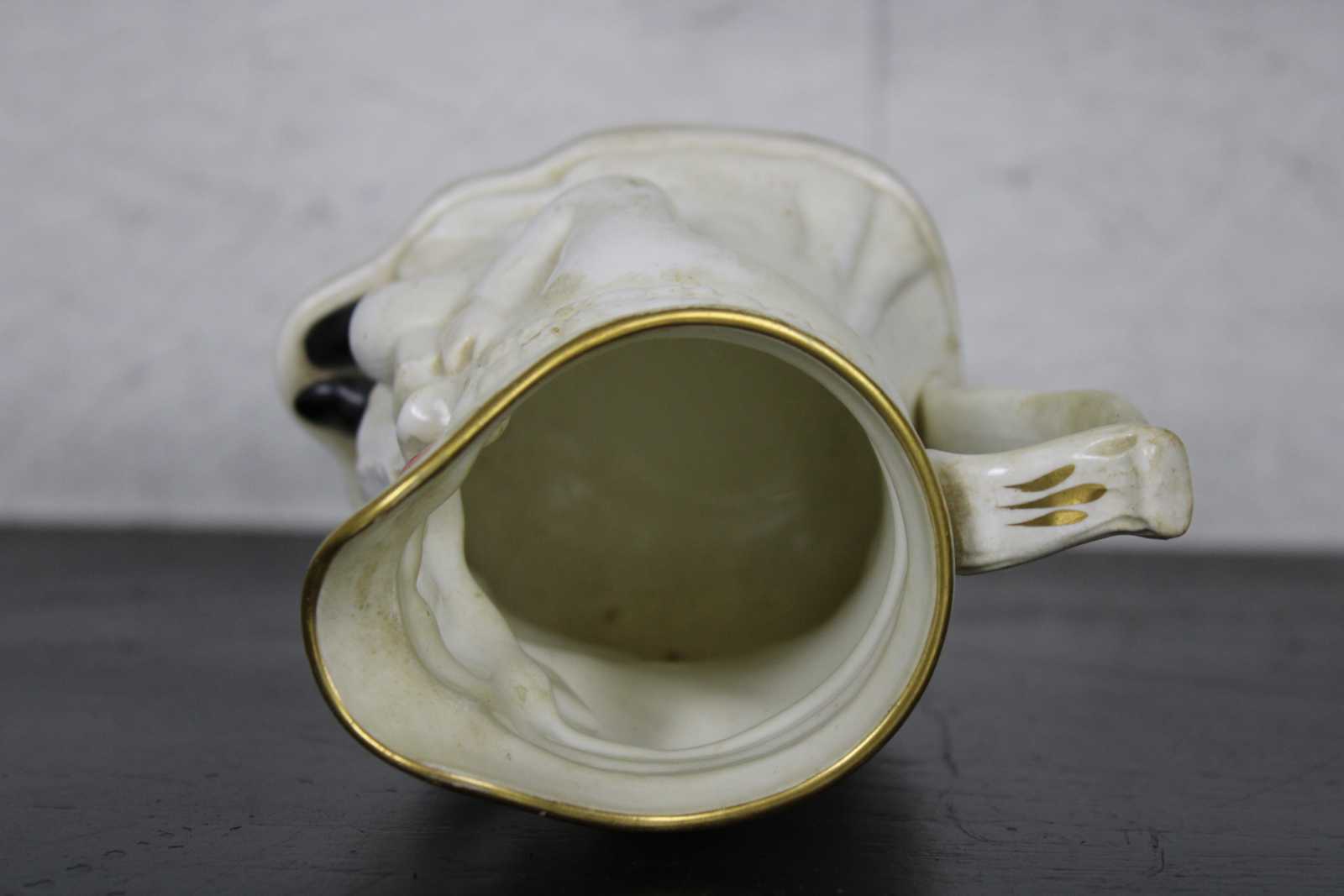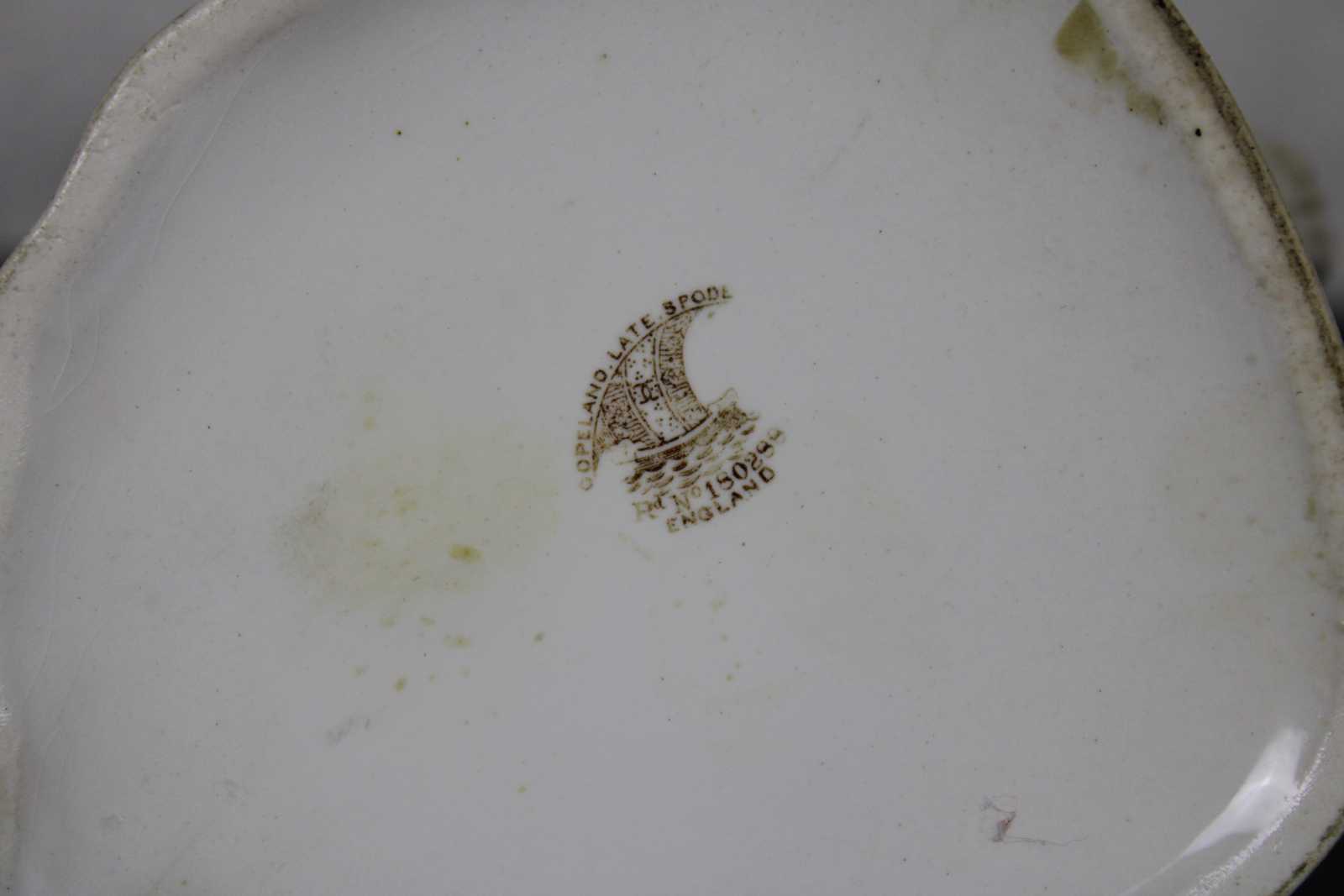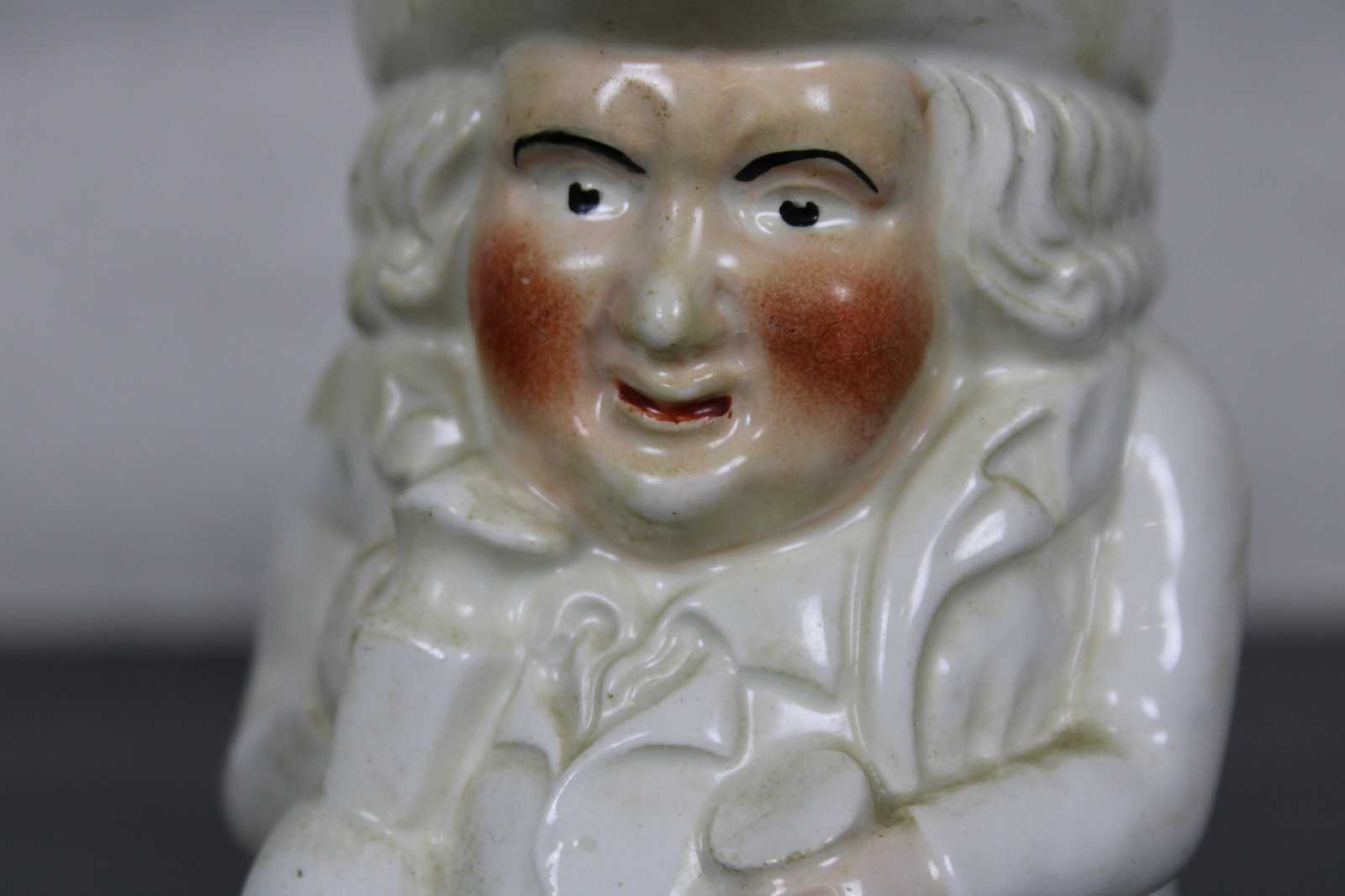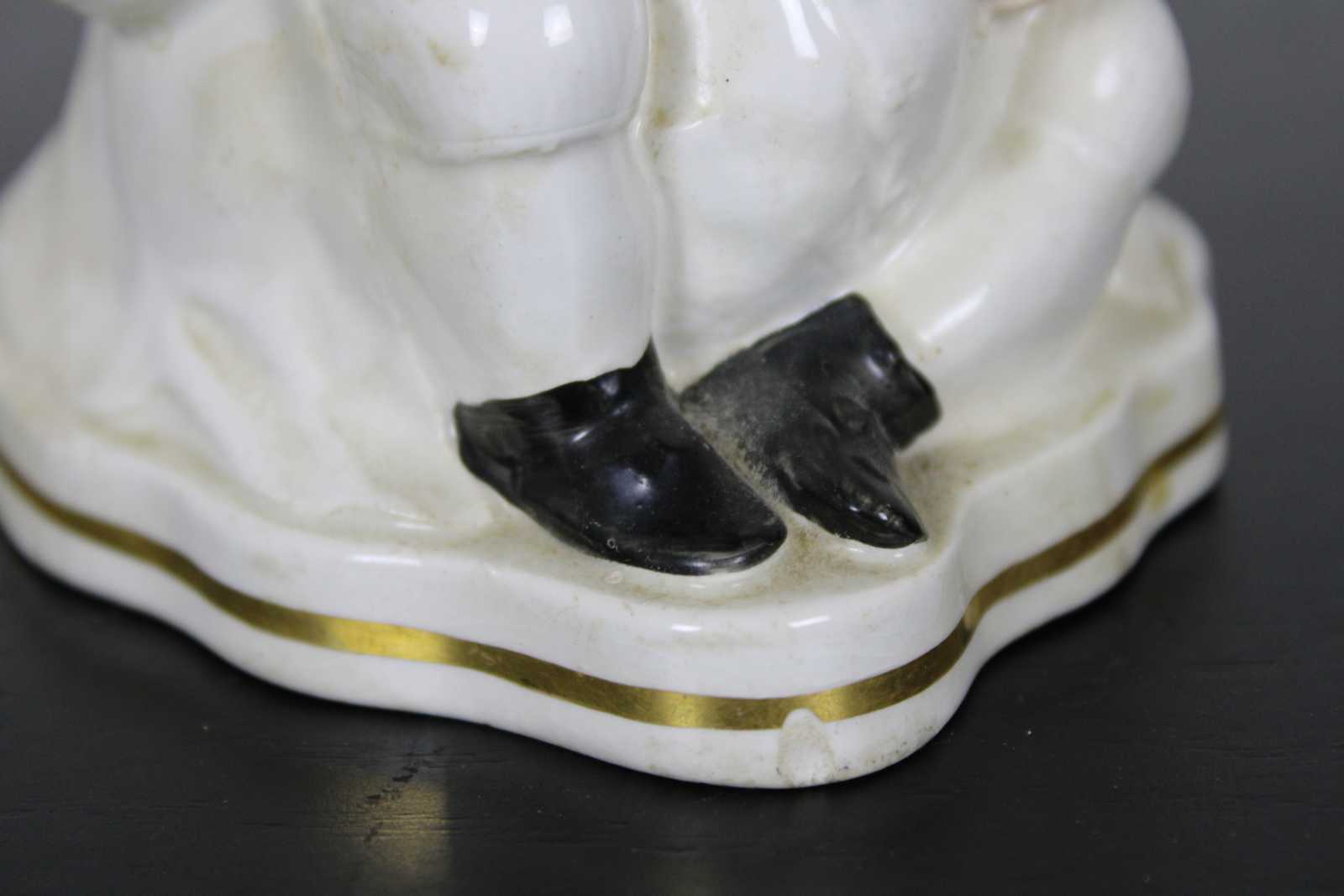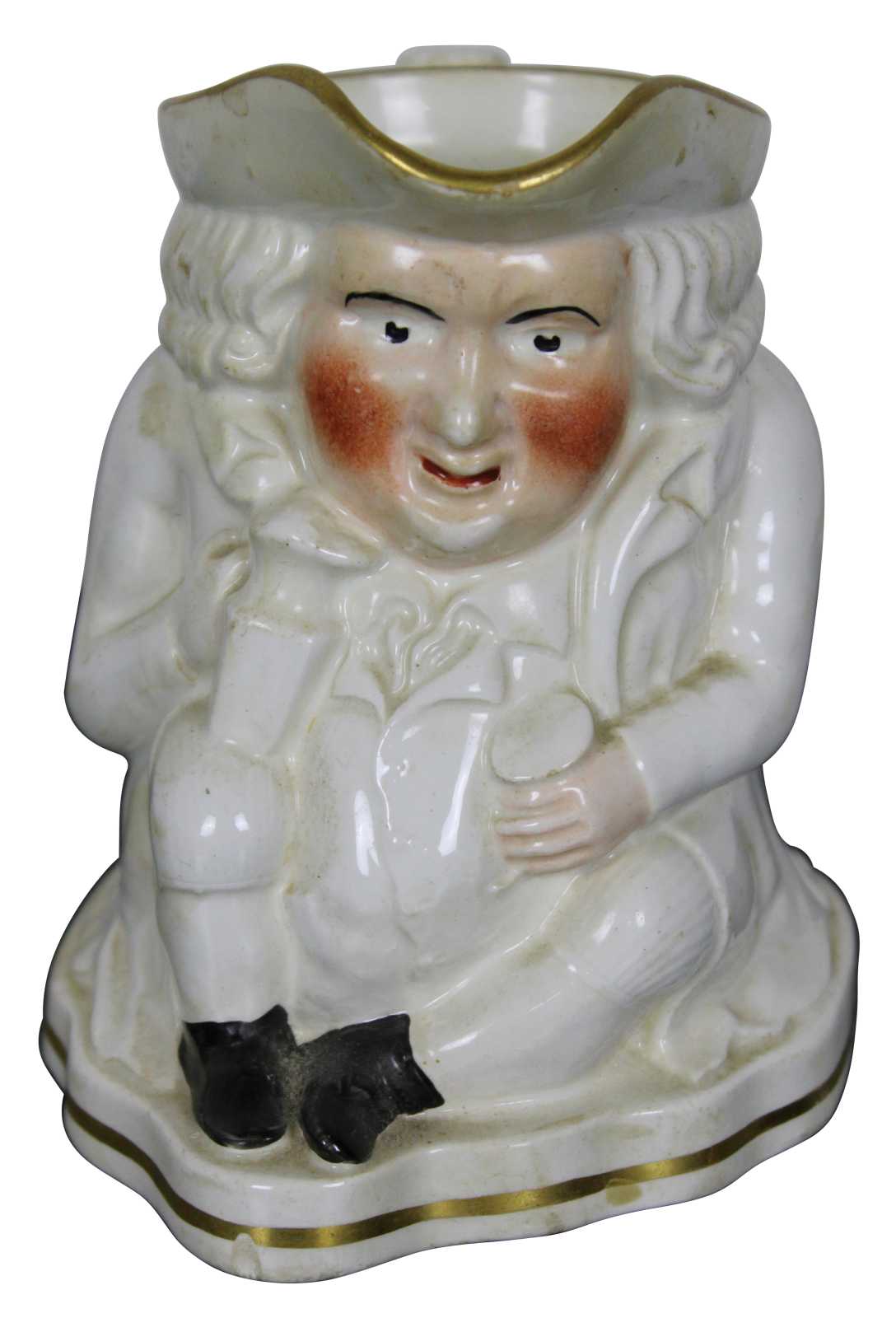
Antique English Copeland Late Spode Toby Jug Pitcher Colonial Englishman 5"
$188.00
Shipping:
Free Shipping Included
Delivery:
Estimated 2-15 Business Days
Payments:
Credit Card, Check, Cash, PayPal, Apple Pay, Venmo
Returns:
30 Days 100% Money Back Guarantee, Buyer Pays Return Shipping
Description
19th century Copland Late Spode English Staffordshire rare porcelain toby jug in the shape of asdeated colonial Englishman holding a cup and pitcher. 180288 “Spode is an English brand of pottery and homewares produced by the company of the same name, which is based in Stoke-on-Trent, England. Spode was founded by Josiah Spode (1733–1797) in 1770, and was responsible for perfecting two extremely important techniques that were crucial to the worldwide success of the English pottery industry in the century to follow.
He perfected the technique for transfer printing in underglaze blue on fine earthenware in 1783–1784 – a development that led to the launch in 1816 of Spode's Blue Italian range, which has remained in production ever since. Josiah Spode is also often credited with developing, around 1790, the formula for fine bone china that was generally adopted by the industry. His son, Josiah Spode II, was certainly responsible for the successful marketing of English bone china. Messrs Spode were succeeded in the same business in c. 1833 by Copeland and Garrett, who often used the name Spode in their marks. In particular these are called 'Late Spode' and include productions of the so-called 'Felspar porcelain'. They also produced other kinds of bone china, earthenware, parian, etc. The partnership continued in this form until 1847.[13] After 1847 the business continued until 1970 as W.T. Copeland and sons, and again the term 'Spode' or 'Late Spode' continued in use alongside the name of Copeland.
Condition
Good Overall - Some staining; one chip to base.
Dimensions
3.75” x 5” x 4.75” (Width x Depth x Height)
